Where to find French archives: an overview of French administrative divisions
In France, archives are organized based on administrative divisions. This is why it is important to understand French administrative divisions when you want to research a French register. It is indeed important to understand where the document was created, but also where it is now kept.
Here is an overview of French administrative divisions.
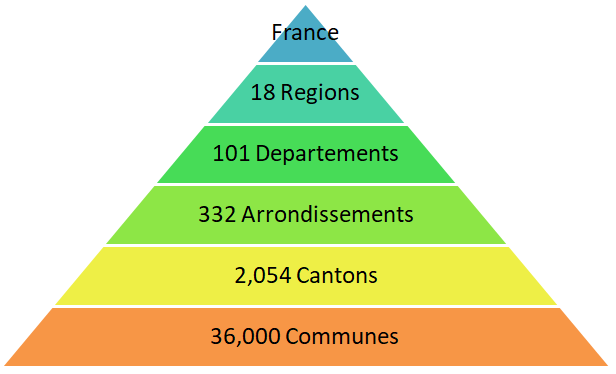
French regions
The region is the largest administrative division of France. Nowadays there are 18 regions (13 metropolitan regions and 5 overseas). But this changed recently (in 2015), so you might sometimes find information corresponding to the older division into 27 regions.
However, regions do not play a big part in how archives were created or kept, as they are quite recent (they were first created in 1956).
French departements
Each regions is then subdivided into departements. There are 101 departements in France. This division is the most important to know because this is where most archives are kept.
Indeed, each departement has its own archives: departemental archives (archives départementales). Most of the registers that are useful for genealogy and family history are kept in departemental archives, even if they weren’t created on a departement scale.
To sum up, every record that was created by a subdivision of a departement has now been centralized in the departemental archives.
For example: civil registration and census records which were created for each commune, are now kept by departemental archives. The same is true for judiciary records which were created in each arrondissement or canton.
To know more about the French census records, read this post on How to use French census records.
French Arrondissements & French Cantons
Each departement is subdivided into arrondissements (there are around 3 arrondissements per departement). And each arrondissement is then subdivided into cantons.
Knowing the canton or arrondissement of a commune will not be necessary for basic records (civil registration or census records). But it can be useful when you want to dig deeper into your family history: to find military records from the 19th century, estate records, judiciary records, …
French Communes
The smallest French administrative division is the commune. It corresponds to a city which can be as big a Paris or as small as a village of less than 100 inhabitants.
There are more than 36,000 communes in France. Each commune has a mayor and is in charge of civil registration. This means that each commune in France had its own registers for births, marriages and deaths.
To know more about the French civil registration, read this post on the difference between civil registration and parish records.
Census records and land records were also held for each commune.
Note: the most important cities of France, such as Paris, Lyon and Marseille, are subdivided into smaller divisions: the municipal arrondissements. For example, there are 20 municipal arrondissements in Paris. And each municipal arrondissement has its own civil registers.
An example
For example, let’s see what you will need to know if you have an ancestor who was born in the small village of Rochefourchat.
If you use Wikipedia, you will find the following information on the commune of Rochefourchat:
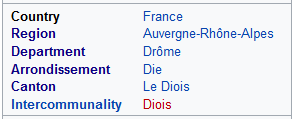
To begin your research, the most important information you will need to know is that this commune is located in the departement of Drôme.
You will have to head to the website for the departemental archives of Drôme and select the type of document that you want to look at.
For civil registration, census records or land records, you will then have to look for the name of the commune to access the records.
And if you want to find estate records or judiciary records, it will be useful to know the canton and arrondissement in which Rochefourchat was located.
Elise
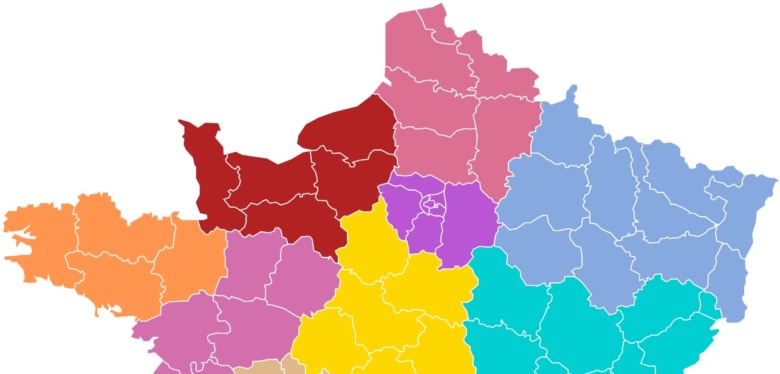
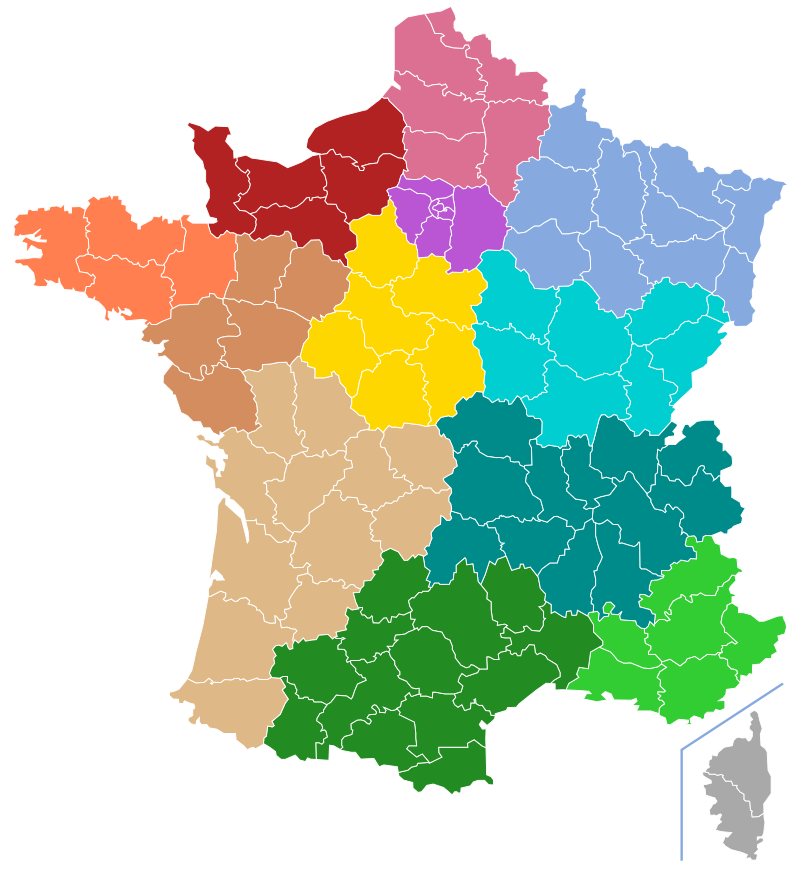
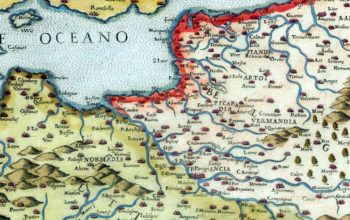


Pouvez-vous me dire s’il existe un lien vers les 20 arrondissements de Paris pour leurs actes de mariage de 1932 que je pourrais leur envoyer par courrier électronique?
Bonjour, vous trouverez les liens directs vers les Archives de Paris sur cet article : https://www.myfrenchroots.com/finding-your-ancestors-in-paris/
Il n’est pas possible de créer des liens directs vers une année précise depuis leur site.
Elise
Hello, I’m happy to have found your website! Would you know where there would be prison records of the people arrested for being Huguenots? I’ve always heard that one of my ancestors was imprisoned after the revocation of the Edict of Nantes and died there. Possibly it was the prison on the Isle de Ste. Marguerite, but I have never been able to find information about any records. They lived in Le Vigan, Gard, and their farm (silkworm farming) was also confiscated. Since their churches were not allowed, it is very difficult to find records. Any help would be greatly appreciated. Thank you.
Hello,
You can find some information about the prisons were Huguenots were kept on the website of the Protestant Museum (in French). There were apparently 4 prisons on the Mediterranean border: in Marseille (Château d’If), in Aigues-Mortes (Tour de Constance), in Agde (fort de Brescou) and on the Isle Sainte Marguerite.
But I unfortunately do not know where their records are kept. If they have been kept, the most likely is that they would be in the Departemental Archives.
Best regards,
Elise
Hi! Your website has been very helpful, thank you! I’m hoping you can help me figure out where to find either marriage or divorce records for Bordeaux between 1932-1945. When I go to the Gironde website, the records only go till the mid 1920’s. Is there a reason why I am unable to find records further than that? Thanks so much for your help!
Hello,
usually only marriage records older than 100 years are put online, due to French laws on privacy. If you want a specific marriage or divorce record older than 75 years, you can ask the town house for a copy. Otherwise, if the record is more recent than 75 years, you will have to be a direct descendant to obtain a copy.
Best regards,
Elise
Hello,
Can death records between 1908 and 1920 for persons who died in Cayenne Fr Guiana also be found in the French archives. I am trying to find the death registration for my great grandmother but I don’t know exactly whe she died.
kind regards
Emelda
Hello,
I believe these records are kept by the “Archives Nationales d’Outre-Mer”. However, for this period, there are not available online (only available up to 1907).
Best regards,
Elise
Bonjour Elise,
My daughter is named Elise too. What a wonderful and helpful website you have created!! I love your articles. Very well written and informative! Keep up the good work!
Laura
Elise: I have been told there is a substantial collection of 19th century Mexican documents in Paris, but no one in Mexico has been able to shed any light on this “legend” Would you have any notion?
I unfortunately do not know anything about these archives. There could be some documents in the National Archives (Archives Nationales) or in the military archives (Service Historique de la Défense), if it’s about the French interventions in Mexico.
Bonjour Elise,
Firstly, thank you for your website which is so very helpful for historians who have French ancestry.
My husband’s g grandmother, Marie Elise Eugenie Senecal was born in Dieppe, Seine-Maritime, Normandy in 1881 but sadly her parents died in 1882 and 1896 leaving her an orphan. All her siblings (10) had died at birth or shortly after apart from two brothers: one dying in 1918 as a soldier in WW1 aged 30 and the other from tetanus aged 24. Marie Elise goes missing after her birth record in Dieppe. She appears in England in the 1901 census working as a servant, then a lady’s maid in the 1911 census until her marriage in 1913. Where might I be able to look for Marie in
France? I can’t find her with relatives in censuses.
Thank you,
Hello, apart from census records, you could look for her brothers’ military recors which could give clues about where they lived after their parents’ death.
Otherwise, if you have the opportunity to go to the Archives of Seine-Maritime, there could be information in the Justice archives about who her guardian was after her parents’ death.
Hi Elise, thank you for sharing all of the useful information on your website. I’ve found it to be very helpful and it has filled in many gaps in my knowledge.
I’ve been researching my grandmother’s line, the name Ginguay which is quite uncommon. Most of the Ginguay’s I’ve found now, all go back to around the late 1600’s in Bernieres, Seine Maritime.
My father mentioned a family story of two brothers (possibly Portuguese or Paraguayan) being shipwrecked off the Normany coast but this has been impossible to verify due to having no dates.
My father also mentioned another family story about an ancestor getting pregnant with the “lord of the Manor” while working as a servant. I have had more success with this and I have found this was my great-great-great grandmother Florentine Ginguay whose son was Hippolyte Ginguay. I have not been able to trace the father as there is no mention of him on the birth record. I know there were several manor houses in Bernieres including Durdan Castle which is close to where I think they lived.
I have also dicovered that my great uncle (Maurice Henri Ginguay) was a captain in the French army and was awarded the Legion of Honour in 1939. I contacted the military archives many months ago but never heard anything back.
Your information has been so helpful, so thank you!
Best regards
Ash
Hi, I have been tracing my family tree and it was going pretty well until I got stuck with Auguste Renaud, his family came to New Brunswick Canada from Bordeaux France around 1850 (from what I’ve found on Wikipedia about him) I’m trying to go farther and find his birth record to possibly find his parents. I’m pretty stuck, where would I search in France archives?
Hello, if he was born in Bordeaux, you should find his birth record on the website of the Archives of Bordeaux : https://archives.bordeaux-metropole.fr/archive/recherche/etatcivil2018/n:43
This record should give you the name of his parents.